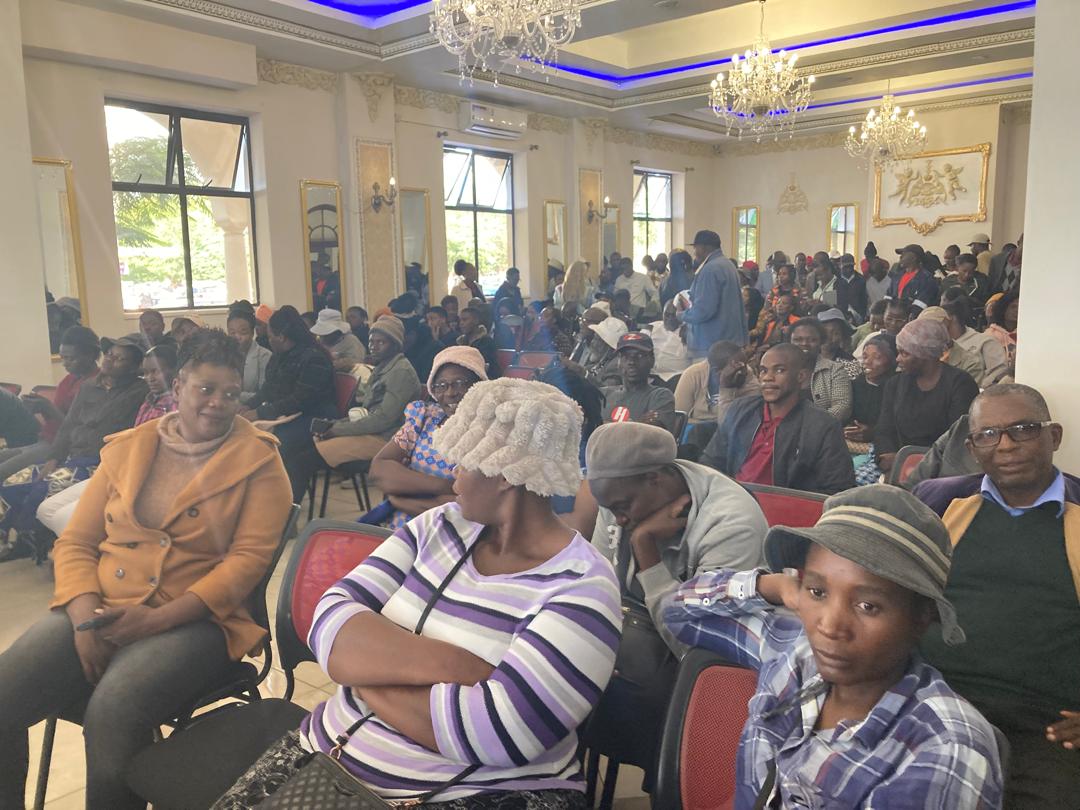A majority of Bulawayo residents have rejected the Private Voluntary Organisations (PVO) Amendment Bill, demanding that it be redrafted.
They argue that the bill, in its current form, grants the government excessive powers to control civic space, ultimately harming communities.
Residents expressed a preference for self-regulation by Non-Governmental Organizations (NGOs) and Civil Society Organisations (CSOs) over increased government oversight of their activities.
These opinions were shared during the public hearings on the PVO Bill held by the Joint Portfolio Committee on Public Service, Labour and Social Welfare and the thematic Committee on Gender Development in Bulawayo on Tuesday.
Most of the residents raised concerns about the increased powers of the relevant minister and new registration procedures that required NGOs/CSOs registered as trusts or charities to be registered as PVOs, with mandatory registration for all organisations or risk penalties.
The PVO Amendment Bill (H. B. 2, 2024) was gazetted in March this year to amend the Private Voluntary Organisations Act (Chapter 17:05).
Among other issues, the PVO Amendment Bill aims to bring the existing PVO Act into line with Recommendation Eight, made by the Financial Action Task Force (FATF) to prevent money laundering and terrorist financiers from abusing PVOs for illicit activities.
Kickstarting the debate was Khumbulani Maphosa from the Matabeleland Institute of Human Rights (MIHR) who said the bill was a waste of time and resources.
Maphosa said the bill should be thrown away or drafted afresh, stating it was against devolution as espoused in Chapter 14 of Zimbabwe’s constitution.
“The bill is silent on devolution looking at the functions of the Office of the Registrar spelt in Section 3(2) of the Bill. The Bill doesn’t mandate the office to function in provinces while saying those who want to register should go to Bulawayo or Harare,” he said.
Maphosa was also opposed to the strengthened powers of the minister, saying the minister would turn into a law unto themselves.
“If the Registrar suspends you, you appeal to the minister but now who will you appeal to if the minister is the one who is the police and judge? There is no separation of powers,” he said.
Yolanda Millin from Accountability Lab said the bill was null and void as it contravened Zimbabwe’s constitution as NGOs had a right to choose if they want to register as trusts or PVOs.
She added that the government was not supposed to regulate NGOs, as that regulatory function sounded like control.
“Allow the CSOs and NGOs to regulate themselves by creating a platform. We can lose aid, financial assistance and foreign currency because the minister using their political influence may interfere,” she said.
Anita Nyathi concurred compulsory registration was wrong and that the Registrar’s powers had to be clipped and specified.
“The Bill has to remove criminal liabilities in terms of labour rights rather than punish NGOs. Give them time to register or educate them on how to do it. Also, define the registration timelines and redraft the Bill after extensive multi-sector consultations with stakeholders,” she said.
Felix Magalela Sibanda from the Post Independence Survival Trust (PIST) said it was shocking how some people were in support of the PVO Amendment Bill yet President Emmerson Mnangagwa had declared drought a national disaster, which necessitated funds that required assistance from NGOs and CSOs.
“This bill is not in tandem with the president’s declaration of drought as a disaster. The role of NGOs and the government must be symbiotic,” he said, narrating how NGOs were helpful even during the times of the liberation struggle.
“When I was a detainee with the late (national hero) Sikhanyiso Ndlovu at Gonakudzingwa, we were held by Christian Care. Even the late Joshua Nkomo, together with Ruth and Josiah Chinamano were helped by NGOs during the liberation struggle.”
Jennifer Kawoma from the Bulawayo Progressive Residents Association (BPRA) said the government should reconsider the Bill because the government too needed assistance from CSOs.
“Look at our hospitals, there are no pills and women are dying from cancer,” she said.
A ‘Mai Jukwa’ from Burombo in Mzilikazi said the World Food Programme (WFP) had been assisting vulnerable households there with US$10 per child and US$90 per month, asking why the government which was failing to give families US$20 want to stop the function of NGOs
“If the government is concerned about illicit activities, it should first check itself because, during the Covid-19 era, some government officials stole masks,” she said.
However, some were in support of the Bill, as Mabutho Moyo from the Affirmative Action Group (AAG) said NGOs needed to be regulated because they had been using beneficiaries, giving them little amounts of money such as US$5 yet they pocketed thousands from donors.
Another participant Matthew Mutavai said he was “totally in support of the PVO Bill,” claiming NGOs wanted to be free spirits regarding their mandate yet they pushed certain political agendas.
“They divert aid and use the data they capture for political agendas and some even act as commissariats, they need to be regulated,” he said.
Ramu Makonense from the National Youth Service alumni in Bulawayo said as watchdogs, NGOs should have no problem with being watched.
“NGOs claim to assist the rural populace and in Binga there are about 10 000 NGOs yet they are doing absolutely nothing. They are not declaring their source of funds and are not accountable. We must know their board members,” he said.
Archibold Chiponda from Hope Zimbabwe said the bill must be passed with expediency claiming that Zimbabwe was the only country in southern Africa not to have the law.
“Countries in the Americas and Europe, which are proponents of freedom of association, have the same bill. If you associate with criminals you must bear the consequences, that’s why they need to be regulated.”

